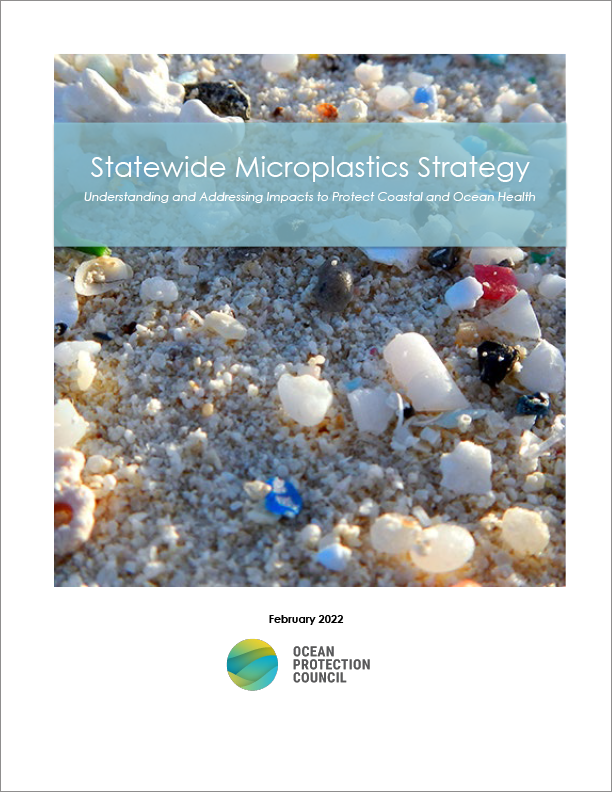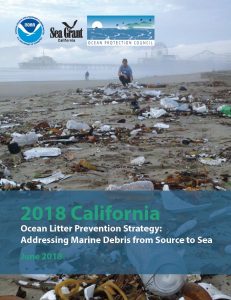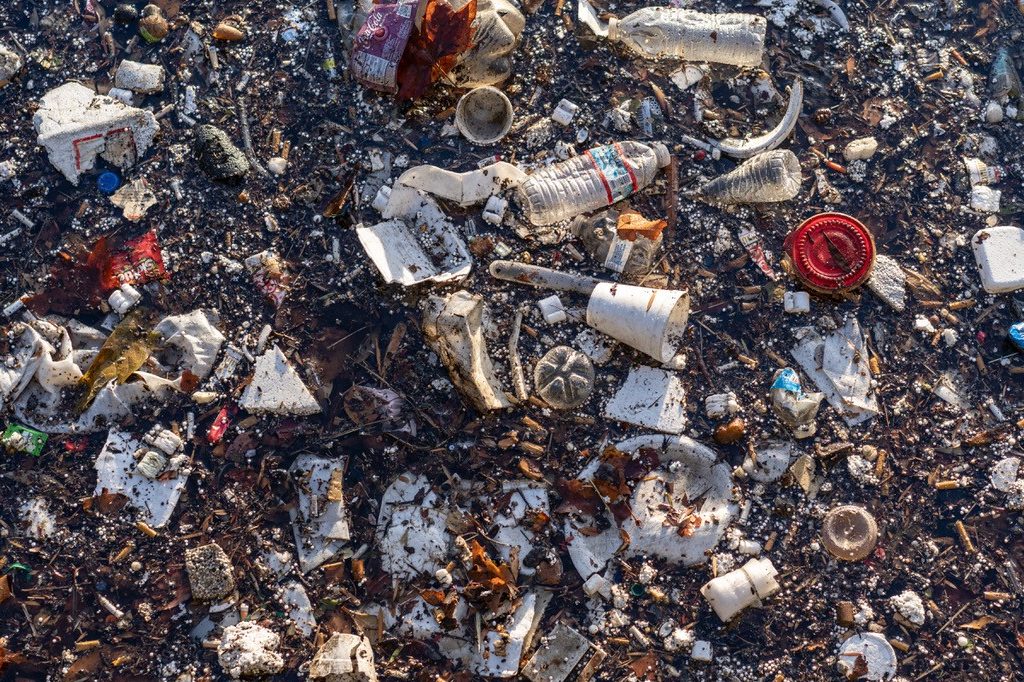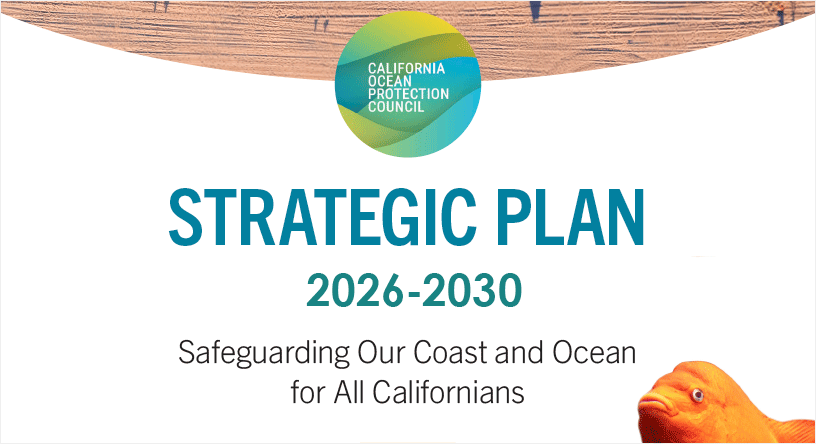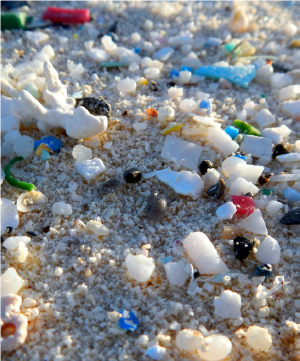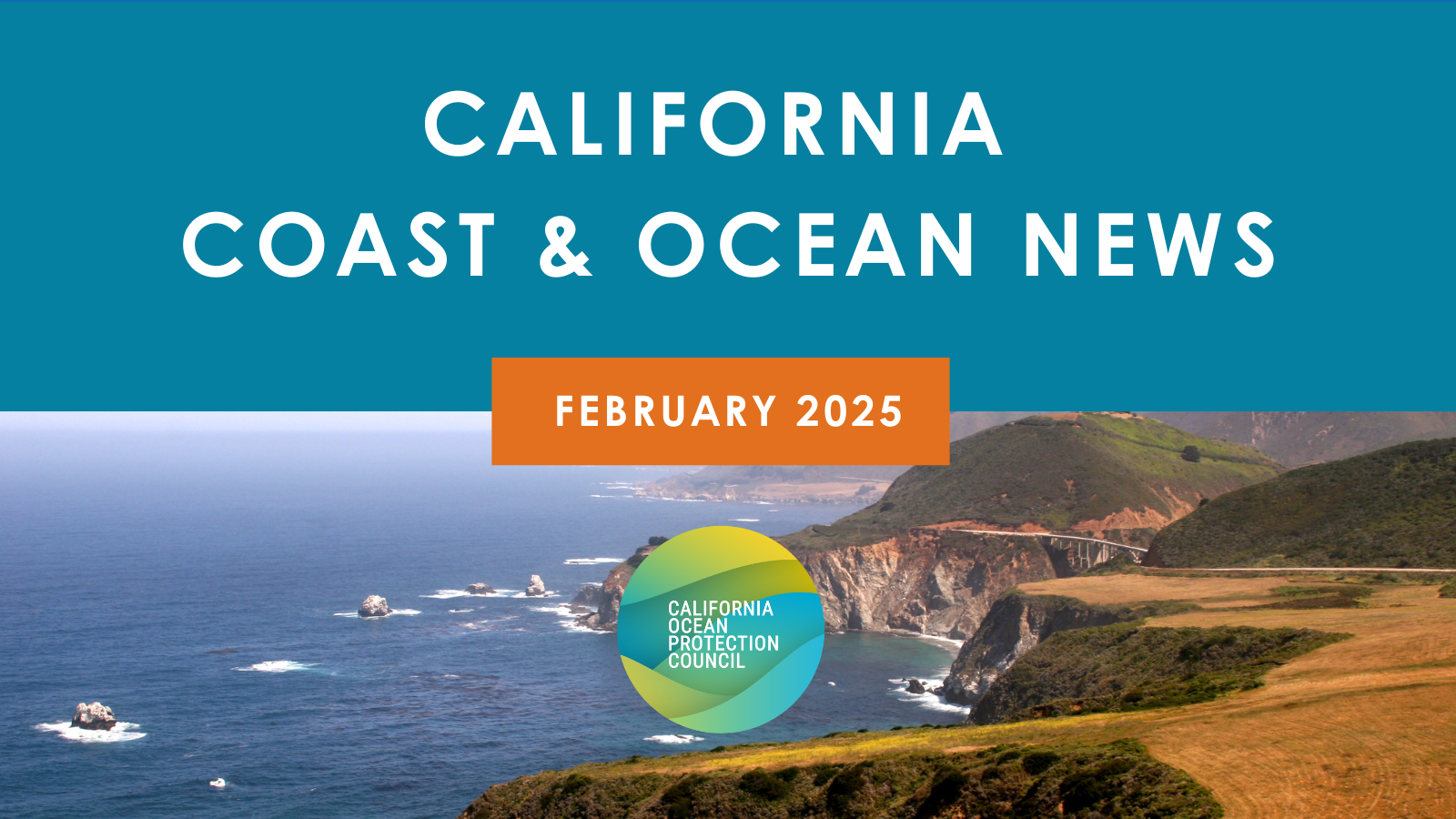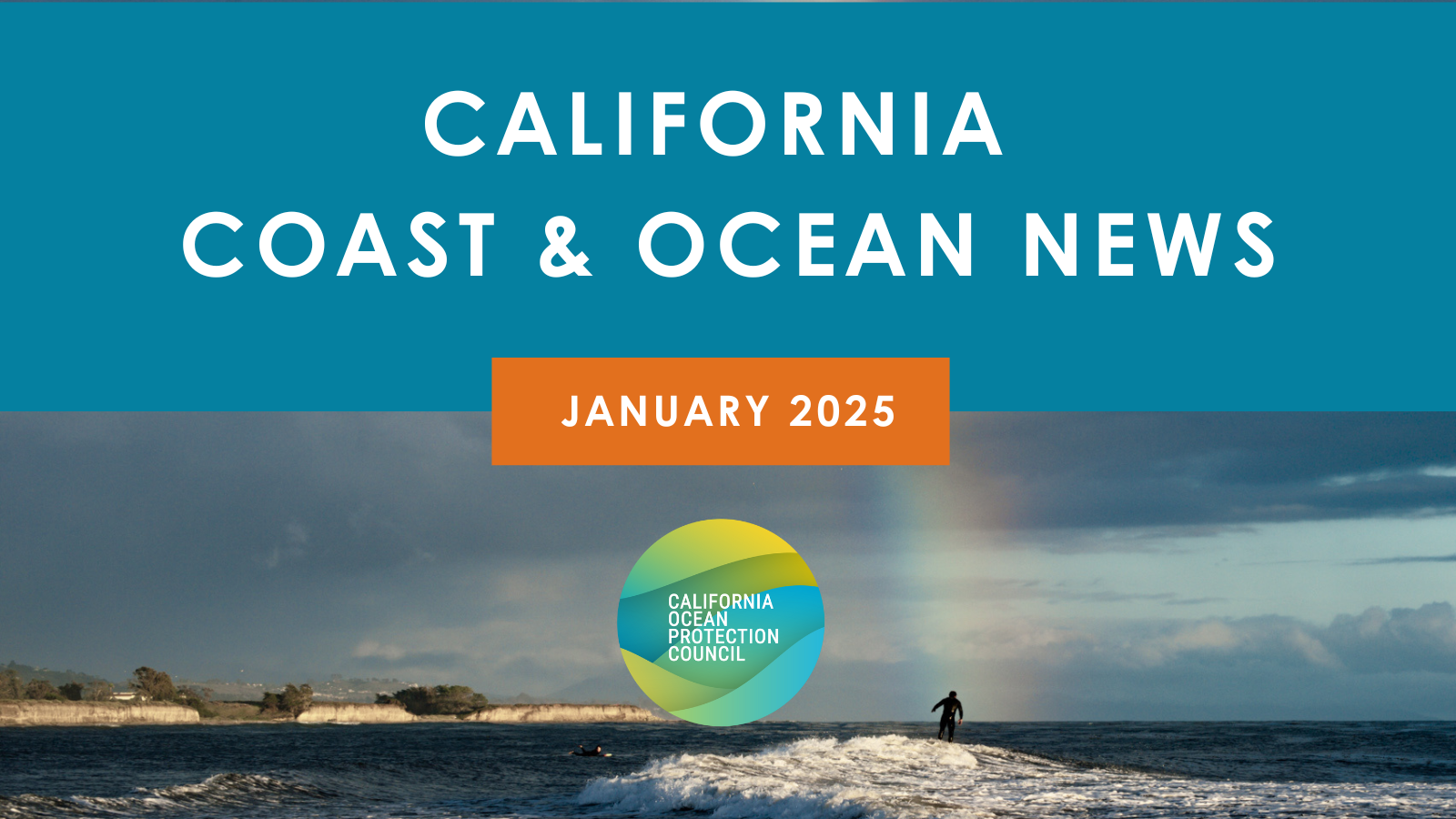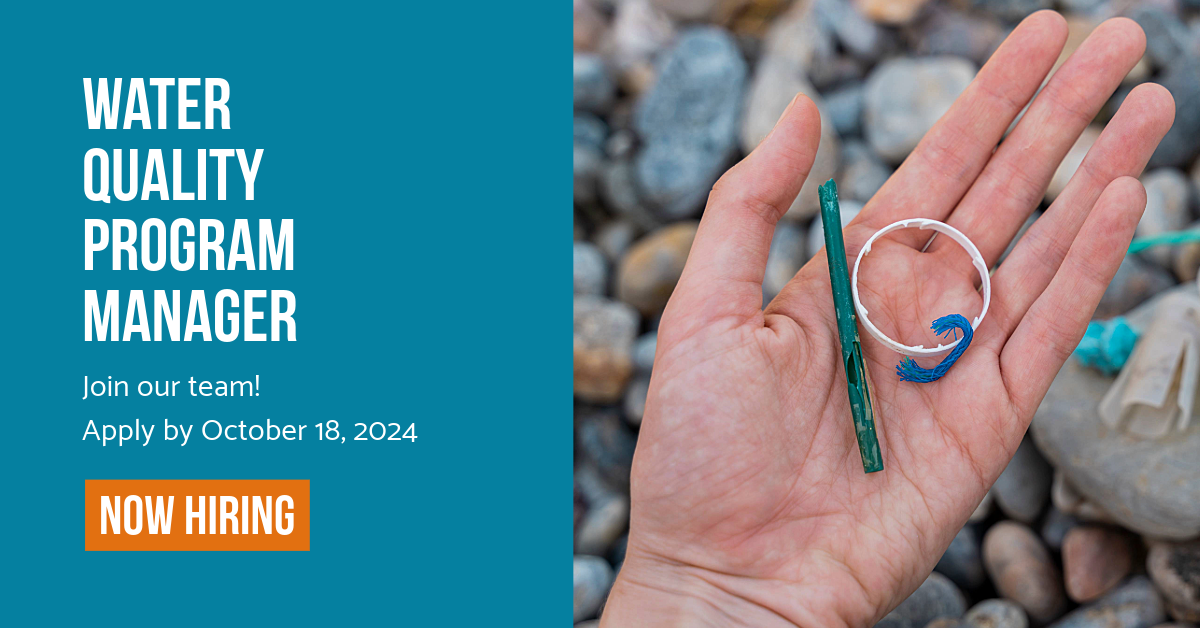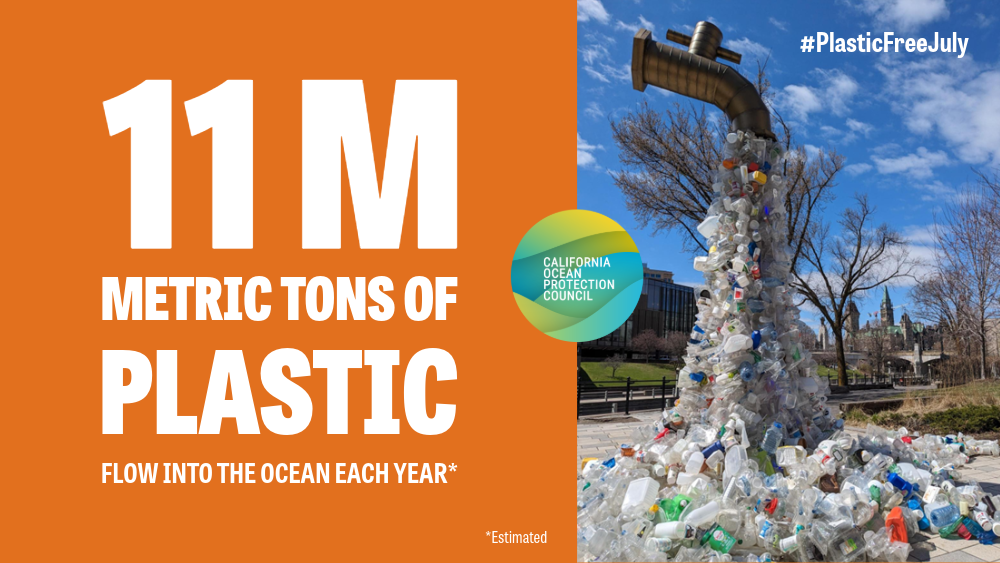Plastic Pollution
Plastic pollution is a persistent and growing problem worldwide that significantly impacts the health of California’s coast and ocean. Plastic pollution harms wildlife and ecosystems, and may be harming our health. Roughly 11 million metric tons of plastics are estimated to enter the global ocean each year, and California communities are estimated to spend more than $428 million annually to clean up and control plastic pollution. Plastics do not fully degrade, and instead break down into smaller pieces called micro- and nanoplastics.
California has become a leader in preventing ocean litter by passing a ban on single-use plastic bags; banning microplastics in wash-off products, like face scrubs and toothpaste; and enacting one of the most comprehensive plastic extended producer responsibility requirements in the nation. OPC’s water quality program works to prevent and reduce plastic pollution by coordinating among a wide range of state and federal agencies and community partners and by supporting research to help the state better respond to this urgent issue.
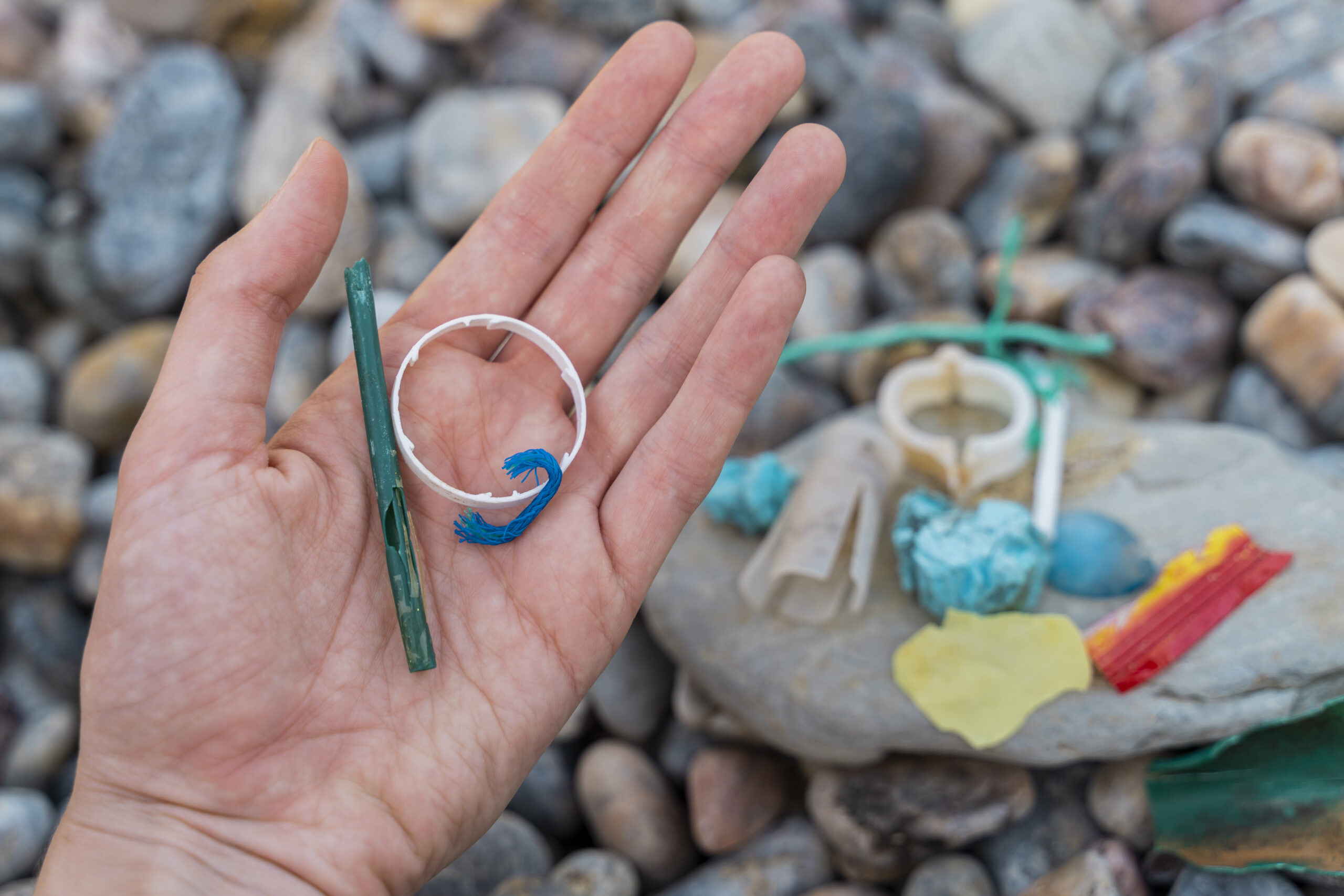
Our Work
Statewide Microplastics Strategy
In 2022, OPC adopted a first-of-its-kind Statewide Microplastics Strategy, pursuant to Senate Bill 1263 (Portantino, 2018), that recommends early actions and research priorities to reduce microplastic pollution in California’s marine environment. The Statewide Microplastics Strategy sets a multi-year roadmap for California to take a national and global leadership role in managing microplastics pollution, following a simultaneous two-track approach:
Track 1: Solutions
- Pollution Prevention: Eliminate plastic waste at the source (products or materials from which microplastics originate).
- Pathway Interventions: Intervene within specific pathways (ex: stormwater runoff, wastewater, aerial deposition) that mobilize microplastics into California waters.
- Outreach & Education: Engage and inform the public and industries of microplastic sources, impacts, and solutions.
Track 2: Science to Inform Future Action
- Monitoring: Understand and identify trends of microplastic pollution statewide.
- Risk Thresholds & Assessment: Improve understanding of impacts to aquatic life and human health based on local data.
- Evaluating New Solutions: Develop and implement future solutions.
California Ocean Litter Prevention Strategy
OPC partnered with the National Oceanic and Atmospheric Administration Marine Debris Program to develop and implement the California Ocean Litter Prevention Strategy, which describes actions that OPC and California stakeholders will pursue to address plastic pollution through 2024. The Strategy is an update and expansion of a 2008 Implementation Strategy that laid out actions that state agencies could take to address ocean litter.
To receive emails about upcoming events, please subscribe to OPC’s general email announcements and California Ocean Litter Strategy project email announcements (hosted by NOAA Marine Debris Program). Learn more by visiting the Ocean Litter Strategy webpage.
Plastics Monitoring Strategy
On behalf of OPC, San Francisco Estuary Institute (SFEI) has developed a draft Statewide Plastics Monitoring Strategy and Planning Framework to provide a science-based, collaborative roadmap to monitor both macroplastics and microplastics across the state’s freshwater, estuarine, and marine ecosystems. This document will support the development of a comprehensive, long-term monitoring program to understand, track, and guide actions to address plastic pollution in California’s aquatic environments.
OPC and SFEI are seeking public feedback on the draft Statewide Plastics Monitoring Strategy and Planning Framework. Please share comments by using the form (hosted by SFEI) below by Wednesday, March 11, 2026.
OPC and SFEI will host a webinar to provide an overview of the Strategy and solicit verbal public comment. The webinar will take place Wednesday, February 25, 2026 from10:00 a.m. to 11:30 a.m. A recoding will be available after the webinar.
Please visit the project websitefor more details on the Strategy. All questions should be directed to plastics@sfei.org with the subject line “Statewide Plastics Monitoring Strategy”
Featured Projects
- Sector-Specific Workshops – In 2025 OPC is hosting five science-based workshops to develop practical strategies for reducing microplastic pollution from key industries in California. The workshops support California’s Statewide Microplastics Strategy. The workshop outcomes and recommendations are being summarized in reports that will help to inform California state agencies and legislative actions towards preventing, addressing, and researching microplastic pollution in partnership with industry, academia, and NGOs. OPC is currently in the process of planning workshops for the fisheries and aquaculture, single use foodware and packaging, and agricultural industries. The following workshops have been completed. View the workshop summaries:
- The textile workshop, held in partnership with Materevolve LLC through an OPC grant, explored the full lifecycle of textiles—from materials and design to laundering and disposal—to identify voluntary actions, research priorities, and long-term policy opportunities.
- The tire workshop, held in partnership with the Ocean Science Trust, focused on innovations in tire materials, design, and on-vehicle tire wear collection devices that could reduce pollution.
- Developing a statewide plastics monitoring plan – In 2023, OPC approved funding for the San Francisco Estuary Institute to develop a plastics monitoring plan for state waters. Effective management of plastics begins with understanding the extent of pollution and to identify where and what types of plastics are most pervasive. This project will leverage existing monitoring programs and resources to develop an overall statewide perspective that informs and supports the multiple statutory, policy, and regulatory drivers related to plastic pollution. See more details about the project on SFEI’s website.
- Reducing single-use foodservice plastics in Los Angeles County – OPC is supporting Los Angeles County’s implementation of a 2022 ordinance to reduce waste from single-use plastics and polystyrene in food facilities. This project includes outreach and training for over 2,600 impacted businesses as well as public outreach and education. Successful implementation of this ordinance will reduce the amount of polystyrene and other plastic that harms the environment and human health and has the potential to serve as a model statewide.
- Improving microplastic pollution understanding and management – OPC, in partnership with California Sea Grant, has funded five projects in 2023 that were competitively selected through two research calls focused on 1) improving the understanding of the sources of aquatic microplastic contamination and areas of ecological sensitivity, and 2) low-impact development (green infrastructure) best management practices to intervene and prevent microplastics from reaching California waterways through stormwater runoff. A public webinar sharing findings from these research projects, with opportunity for direct Q&A with researchers, was held in November 2025.
Reports Funded by OPC
- Standard Operating Procedures for the Collection of Samples for Microplastics Analysis Part 1: Surface Sediment and Aquatic Biota (2025)
- Trash Monitoring Methods Field Validation Report and Trash Monitoring Methods Playbook (2020)
- A Synthesis of Microplastic Sources and Pathways to Urban Runoff (2021)
- Microplastic Pollution in California: A Precautionary Framework and Scientific Guidance to Assess and Address Risk to the Marine Environment (2021)
Partners
OPC leads interagency coordination on plastic pollution and works with agencies across the state as well as federal agencies. Key partners and their work on plastics include, but are not limited to:
- CalRecycle – Plastic Pollution Prevention and Packaging Producer Responsibility Act (SB 54)
- State Water Resources Control Board – Statewide Water Quality Control Plans for Trash and Policy Handbook on Microplastics in Drinking Water
- California Coastal Commission – California Coastal Cleanup Day
- Department of Toxic Substances Control – Proposed Addition to the Candidate Chemicals List: Microplastics
- NOAA Marine Debris Program – California
Resolutions
OPC adopts resolutions on relevant and timely policy options to prevent plastic pollution. OPC’s work on plastic pollution began with the Council’s adoption of a resolution to reduce and prevent marine debris in 2007, and additional resolutions on policy options to address plastic pollution have been passed since then.
- Resolution of the California Ocean Protection Council Regarding Plastic Bags, adopted in 2016
- Resolution of the Ocean Protection Council on Support for Extended Producer Responsibility Programs, adopted in 2009
- Resolution of the California Ocean Protection Council on Reducing and Preventing Marine Debris, adopted in 2007
Related Program Updates
Staff Contact

Kyla Kelly
Water Quality Program Manager
Kyla.Kelly@resources.ca.gov


